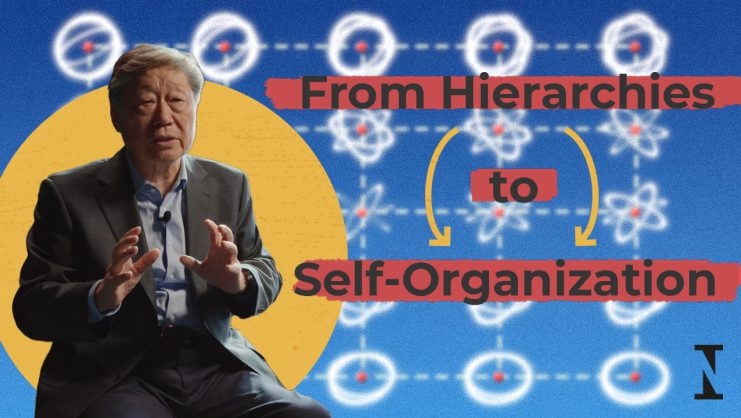The US Army War College introduced the acronym VUCA at the end of the 1980s to describe the new military contexts set to face the world after the end of the Cold War. Over the years, management circles around the globe have ended up taking on this model as the economic and social starting block on which to build a new management style. The change has been utterly profound: VUCA means a departure from low-risk business forecasting, certainty in decision-making and, basically, the stability parameters that had characterized the post-WWII world of business.
Looking back, we can conclude that managers have approached the VUCA context with their traditional style and tools and, in fact, very little has changed in how things have been done over the last 70 years. While hierarchies are softening slightly, leadership style is still grounded in the positioning of power within the organization – with notable exceptions such as tech firms, where labor market conditions and employee demographics dictate other ways of attracting and retaining talent. Meanwhile, managers and executives continue to look for solutions to their problems in MBA classrooms, in Jack Welch’s 80s style. In short, VUCA environments have been circumvented by conservative management models. Disruption and innovation are reserved for business ideas and for external competition in the market. By contrast, internal corporate leadership has followed an almost reactionary stance.
We prefer a bad certainty to a good uncertainty.
The bottom line is that we are on the verge of taking another step forward in this VUCA context and moving to what could be called “epistemic uncertainty,” or the open acknowledgment of our ignorance about both the future and much of the present. Volatility can be predicted, ambiguity can be clarified, complexity can be modeled. But uncertainty has different attributes because it has a profound psychological impact on people. Uncertainty brings with it the perception of loss of control, and people need secure anchors to hold on to and strong foundations to build on. In fact, we prefer the security of definite bad news to the trepidation of possible good news. In a series of well-known studies, it was shown that people taking part in an experimental study were calmer when they knew they had a 100% chance of receiving a specific pattern of electric shocks than when they were only 50% sure this was going to occur.
Uncertainty is therefore a natural stressor, especially when we are continuously exposed to it. The explanation lies in how we have adapted to the world as a species and have managed to survive in multiple environments. When we perceive something as a threat, fear prepares us for a “fight or flight” response, which pumps us with high levels of adrenaline to maximize our alertness. When this response takes place in specific circumstances, it is extremely effective. However, it backfires if the perceived threat is permanent. Since uncertainty opens up multiple scenarios in which we are unable to assess the extent to which threats may materialize, two fundamental psychological reactions are triggered. Cognitively, our brain shuts down, hindering decision-making. At the same time, emotions such as fear and frustration take over, in the search for an irrational response that will help us to extricate ourselves from the situation. This cocktail is difficult for anyone to digest, and partly explains the tremendous wave of psychological disorders that society is currently experiencing. In fact, recent work-related studies have shown that unemployed people are less anxious than working people who feel they are at risk of losing their jobs. Once again, we prefer a bad certainty to a good uncertainty.
How can we successfully tackle this scenario of epistemic uncertainty in the business world? This question is particularly relevant for managers who are role models for teams. Managers must manage uncertainty in order to instill trust in their followers. There are a few ways to do this:
- Advocating intellectual humility. This means being able to differentiate between what we know and what we don’t know and, therefore, accepting that our decisions may be wrong. The truth is that this kind of attitude is seldom found in the business world, basically because it is associated with prejudices such as the idea that humble people are vulnerable and lack ambition. The good news is that society’s openness to diversity and inclusion is changing this perception, but organizations still champion this subtle yet critical bias when assessing their employees’ worth. However, the fact is that an intellectually humble approach breeds open-mindedness and, above all, can help reduce the stress associated with the imperative that we have to control what is happening around us, which is impossible in a context of epistemic uncertainty.
- Exploring the wider context of problems. We need to question the “tunnel vision” that has marked many organizational decisions to date, motivated by the fast pace and urgency of business. Adopting a holistic approach is especially important in the world of management, as more and more contextual factors must be taken into account when solving issues. Although we have more and more technological tools to capture these complexities, such as data analytics and AI-based solutions, managers must ensure that they have transcended the boundaries of a specific problem to understand the environment that may be affected by any decisions being made.
- Socializing management functions. The postmodern era we live in has shown that the world is construed socially and is always biased by the view of the observer. Thus, uncertainty is also related to the different ways in which the people around us see the world. Contrasting our views with others (colleagues, clients, team) sheds new light on issues and helps us to make better decisions, since pooling the subjective opinion of many brings objectivity to our judgments.
It is no easy task to change a management style. This requires profound organizational transformation to foster new attitudes in both managers and employees. However, if we fail to change our mindset, we will remain helpless to address the epistemic uncertainty that is increasingly affecting us not only as managers but also as citizens and members of our social communities.
© IE Insights.











